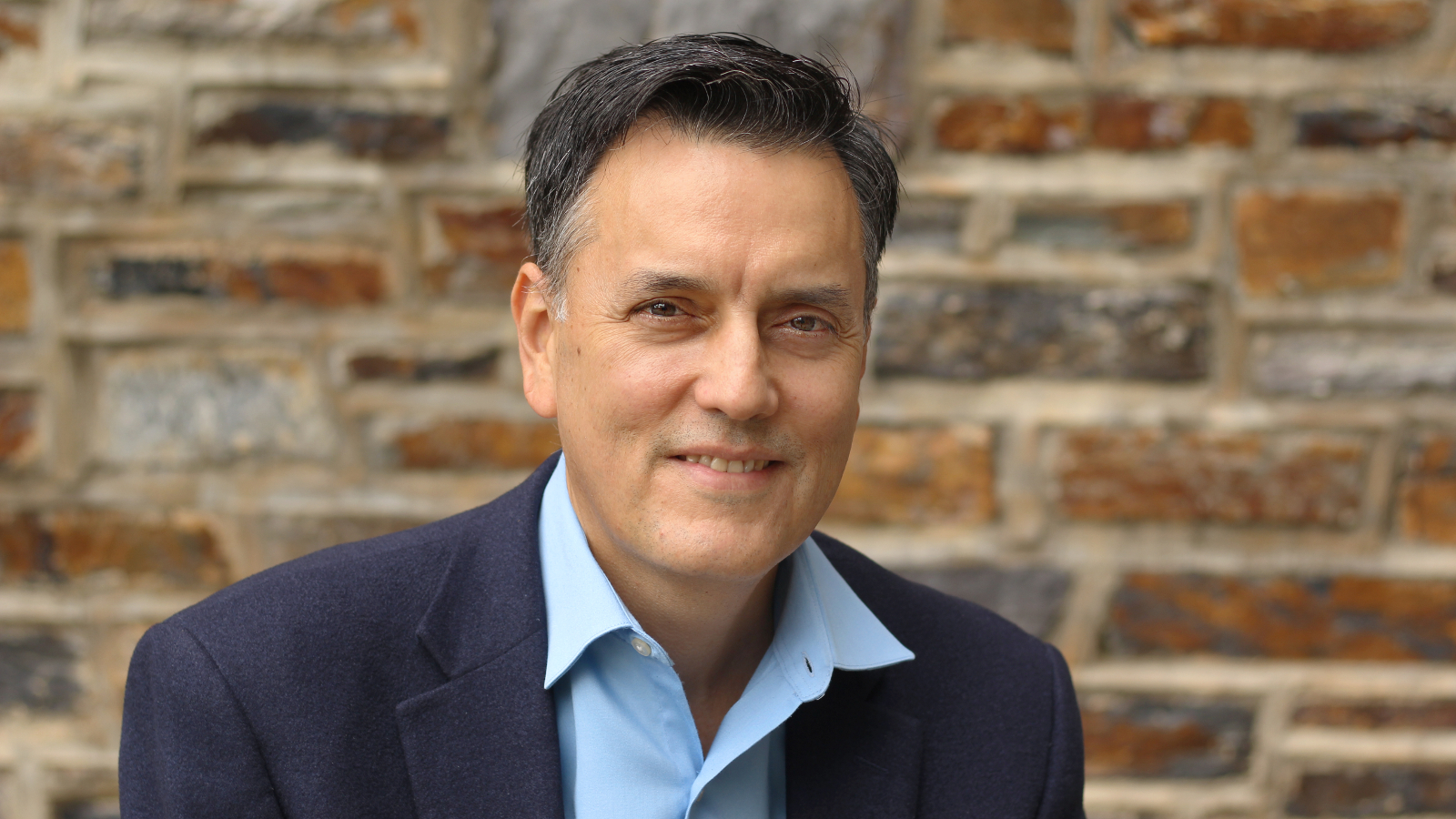Morales Named Executive Director of Duke’s Master of Engineering Management Program
An executive-in-residence with the program since 2017, Morales wants to deliver a transformative student experience underpinned by the program’s “Professionalis

Longtime tech industry executive and author Luis Morales has been named executive director of Duke University’s highly ranked Master of Engineering Management (MEM) program, effective July 1. An executive in residence with MEM since 2017, Morales succeeds Brad Fox, who served nearly 18 years in the role and is now associate dean for master’s programs in the Pratt School of Engineering.
Before joining Duke, Morales spent 28 years in various engineering and leadership roles at Cisco Systems and AT&T Labs. Over the past several years, he has made important contributions to the MEM program focused on increasing faculty engagement. Some of these include co-sponsoring monthly MEM faculty meetings, leading the definition of MEM’s “Professionalism and Five Principles,” driving a refresh of the MEM elective tracks and being a founding member of MEM’s Executive Challenge—a 24-hour event that provides students a capstone opportunity to use everything they’ve learned throughout their classes to solve a real-world business challenge.
Below, Morales talks about what drew him to the Duke MEM program, what plans lie ahead and how he’d like to deliver MEM’s transformational experience under his leadership.
What originally brought you to the Duke Engineering MEM program?
I became an engineer because I’ve always been fascinated by machines—studying them, designing them and repairing them. Early in my career, however, I realized that I had another passion—helping people achieve their full potential. I was able to satisfy that desire to some extent by pursuing engineering leadership and management roles throughout my two decades of industrial experience. But once my children graduated college and found jobs of their own, I felt I had more freedom to pursue this passion to its full extent. I had written a book about quality management that I thought would make for a good subject for a graduate level course. Through a combination of luck and networking, I had the opportunity to pitch the idea to Brad Fox in May 2017. Unbeknown to me, he was looking to add a course on quality management to MEM’s elective portfolio. We met, I made the pitch and the rest is history.
Besides teaching, what are some of the contributions you’ve made to the MEM program?
When I transitioned out of the corporate culture in 2017, I found myself having a lot more discretionary time on my hands. I decided to invest my extra time volunteering at the university and the broader Triangle community. I quickly realized that many of my fellow MEM faculty were eager for more engagement, so I partnered with one of my colleagues, Dean Hering, to host a monthly faculty meeting. These meetings served as a catalyst for faculty collaboration and created a greater sense of community. I then took the official role of faculty liaison, serving as an advocate of faculty with administration and vice-versa. One of my proudest accomplishments in this role was leading the development of MEM’s Professionalism and Five Principles (Communication, Teamwork, Ethics, Critical Thinking and Humanness). These principles tell our students where we want to build core competency during their MEM experience. We think of them as our brand promise to students.
What do you see as the current strengths of the MEM program?
Our biggest strength is our reputation. The program has been around for almost 25 years, and being able to build and maintain a strong reputation has been one of our greatest accomplishments. Another strength is our curriculum, both in terms of depth and breadth of student choices. There are four core classes that all students take, but then they are free to choose four electives from a wide variety of options taught by more than 30 faculty with rich backgrounds in engineering, business and law. And, of course, being part of the larger Duke community is always a plus. People want to come here and be a part of the Duke experience.
What do you want to accomplish in the coming years as executive director?
I have four priorities designed to help us take this program to the next level. First is to develop our “MEM Vision 2027.” Next year MEM will be celebrating 25 years, and as we do that, we want to envision our next 25. I’m chartering a team comprised of representatives of our community—faculty, students and administration—with the goal of developing a vision of where we want our program to be in five years. With everyone’s engagement and participation, this vision will serve as our “north star,” informing our strategies and execution priorities going forward.
Second is to ensure our curriculum remains current and relevant. As long as society needs engineers, our charter of preparing the next generation of engineering leaders, managers and mentors will remain relevant. The challenge for us is to ensure our curriculum is adapting to the needs of industry while remaining true to our core principles. To that end, I’ll work with faculty to ensure our core courses and electives continue to be refreshed as the needs of industry evolve. For example, this year we’re introducing not just a course but an entire elective track around software management. We are doing this to ensure our students are prepared to lead in an environment that is increasingly software centric.
I also want to work with our whole MEM community in attracting an increasingly diverse pool of candidates. This will allow us to deliver a rich cultural experience to our students.
Last but not least, I want to make sure our program is known for its operational excellence. We are easy to do business with, we interact seamlessly with each other, we are focused on student experience and we have fun doing it!
